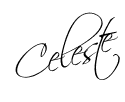I've stated a few times I'm sure that
Thomas Jefferson Education (TJED) is not a curriculum, it is a
set of principles when used properly can result in a fantastic Leadership Education. When we view what type of education many of the great thinkers in history had, we find that they had many if not all of these principles in tact. I, for one, want this type of education for myself and my children...really, if I'm honest with myself, I would love to help everyone be educated in this manner.
That said, here is a glimpse of some of the curriculum items that are helping us along this path. We add more throughout the year as new concepts are sought, breakthroughs discovered, and our minds are expanded to new ideas.
Language Arts
Reading List - All books on the
TJED for Teens
booklist (pages 23-34)
click here for a checklist download. In order to understand what the "levels" mean on the checklist, please refer to
TJED for Teens
pages18-22. I have asked my Scholar Phase children to look to this list first and work their way through the list that is appropriate for their age, also making sure they cover anything before their "age" that they have not read.
Read Aloud books - This year I plan to read aloud "
The Hiding Place
", "
A Beginner's Guide to Constructing the Universe
", "
The Taming of the Shrew
", "
Hamlet
" and "
The Making of America
".
Grammar - Nayna is studying Latin and Chris is studying Japanese, which both cover and reinforce their English grammar. (see more under Foreign Language)
Composition - Each child writes essay's about the books that they read and daily journal entries. Nayna is in the process of writing another fantasy fiction novel.
Mathematics
Math is one of the areas in which I do buy "curriculum", we are still using
Math-U-See.
Mathematical readings - "Mathematicians Are People Too"
book 1
and
book 2
. "
Flatland
" which is largely geometry related.
History
We spend a great deal of time on history, especially American History. I purchased the
American Classics Series (one recommended by Glenn Beck as well as the TJED books - pictured at the top of this post). We are hoping to get through all three over the next two years. We are also adding "
A Brief History of Time
".
Science
I think this is my most challenging subject to keep interesting. We are using a series of Discovery Channel DVD's from the library in addition to our
Concepts and Challenges of Physical Science
,
Chemistry for Every Kid
,
Biology for Every Kid
, and
150 Captivating Chemistry Experiments Using Household Substances
books. One thing I like about the 150 Captivating Chemistry...book is that it also has the chemical formulas in the book and helps describe the actual reactions.
TJED Teens Club
I started a club for youth to meet together and discuss ideas on freedom, participate in simulations, and build friendships. We are using "
The 5,000 Year Leap
", "
Robert Rule's of Order in Brief
", "
You Decide
", and "
The 7 Habits of Highly Effective Teens
" as curriculum for this class. Nayna and Chris are very excited about this class as are the other youth involved!
Logic
I have looked at several logic books and curriculum packages. Some I purchased and thought they were OK, but not really teaching what logic is at a level even I can understand (feeling a bit dumbed down in this area). Then I ran across "
The Fallacy Detective
" and "
The Thinking Toolbox
". I really love these books! I have learned a ton from them myself. We just go over one lesson a week, reviewing past lessons as needed. I have found that I make a lot of errors in logical thinking. We have been able to pick apart several political speeches lately for fallacies...pretty interesting stuff!
Foreign Language
Latin - Nayna is studying Latin. We decided to continue with a video format with
First Form Latin. It is more than I would like to spend, but she learns it so much better with the videos.
Japanese - Chris found a book at a garage sale last week for 50 cents,
Japanese in Thirty Hours
, and has not been able to put it down. He decided he does not want to continue with Latin, so I am still looking into more curriculum for him in Japanese language. This little book does a nice job and in combination with Chris' ability to find ANYTHING on the Internet, he is already finding his own way to learn the language.

















